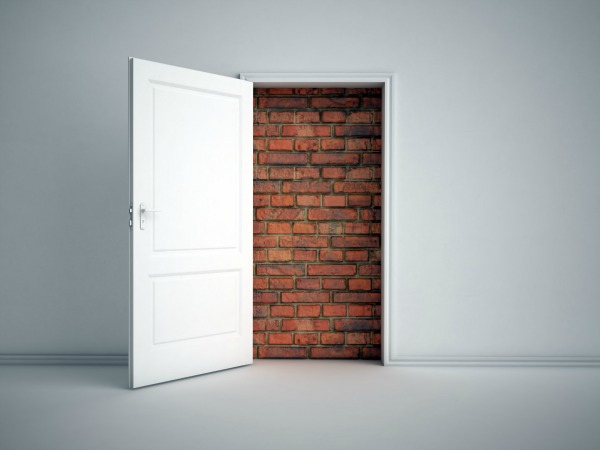Lots of Christians today are asking the question, “Is hell real?” But that’s like a football coach asking his players if they can dunk the next ball.
Wrong question.
Wrong game.
Missing the point.
Here’s something I find acutely unpleasant: conversations that ostensibly are about answering a question to which, in fact, there is no knowable answer. Getting stuck in a conversation like that transmogrifies my medulla oblongata into a crack-snorting hamster on a wheel.
So, to state something so obvious I should be embarrassed to type it: No one has any idea—none, zero, zilch, nada, void, total blank—what happens to anyone after they die.
It could be that heaven is awaiting some of us. Or all of us. It could be that hell is waiting for some of us, or all of us. Could be a Dairy Queen awaitin’ us all. Could be a dentist’s office. Could be a six-room igloo. Could be an interplanetary pinochle tournament.
No. One. Knows. It’s. Not. Knowable.
It’s like wondering if unicorns speak Leprechaun. Maybe they do. Maybe they don’t. But one thing’s for sure: every moment you spend wondering about it is a sad waste of time.
And if, at this moment, you’re inclined to grab your Bible, just stop. It’s not in there. You can pretend the Bible tells you what happens to people after they die, but you wouldn’t be fooling even yourself. Paul enjoins us to give up childish things, and you can’t get more childish than pretending the Bible is a magical window that lets you see beyond life.
Trying to use the Bible as proof of what happens after we die is like trying to use a telescope to row a canoe. Wrong instrument. Wrong purpose. Only results in your haplessly floating about.
The only thing we know for sure about what happens to us after we die—the only empirically provable, objectively verifiable fact about it—is that we do not know what happens after we die. We can hope that we know. We can have faith that we know. We can believe that we know. But we cannot know that we know.
For anyone who believes in an all-powerful, all-knowing sort of God, this naturally raises the question of why exactly it is that nobody is allowed to know anything about what happens in the afterlife.
Why did God set up this system, in this way?
Why that colossal and inviolate mystery?
What is God trying to tell us by so resolutely not telling us what happens to us after we die?
My answer to that is this: If, while wandering around the inside of an art museum, I come across a door that’s solidly locked shut, what do I do? Well, if I’m emotionally immature, I might wrestle with the door’s handle, or maybe fall to the floor and try to peer beneath the door. I might throw a tantrum because I can’t get into that locked room. I might squat beside the door, fold my arms, and determinedly try to imagine everything inside the room. There are all kinds of ways I might waste my time outside that door.
But if I’m emotionally mature, I will simply assume that those in charge of the museum know what they’re doing, and for whatever reason don’t want people going in that room. And that would be good enough for me. So I would turn away from the door, forget about the room, and go back out into the museum, where wonderful works of art are waiting to enlighten and inspire me.
I think that locking the door between this life and whatever is on the other side of this life is God’s way of telling us to get our butts back in the museum.
I think that keeping the afterlife a complete mystery to us is God’s way of telling us to pay maximum attention to the life we have on this side of the door, that the ever-fluid now of our lives is where the action is. As clearly as s/he possibly can, I think God is telling us to with full and focused consciousness be in our lives. To love our lives. To embrace our lives. To believe in our lives. To trust that within every single moment of our lives is virtually everything that we could ever want to know.
I refuse to pretend to take seriously the question of whether or not hell is real. I think entertaining the question of what happens in the afterlife is an insult to everything we’ve been given in this life.
When we need to know, we’ll know. Until then, let’s just enjoy what we have.

















